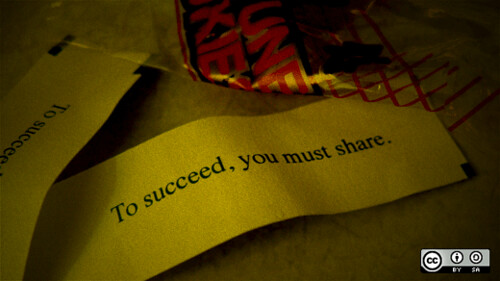I just finished reading Joi Ito’s great New York Times essay about the Internet and openness. This is clearly a piece that resonates with many of us at the Concord Consortium as well as in the creative technology community at large. Joi does an excellent job explaining and characterizing what it is about the Internet’s birth and durability over time, capturing that often ineffable quality of open interconnectedness that is responsible for many of the aspects of networked life we take for granted every day.
One of the most exciting aspects of this all is something that Joi’s piece captures well – the freewheeling and wide-ranging freedom that this openness provides everyone who takes part. The fact that anyone with a good idea is in theory equally close to any other (though this apparently leaves many in this country without good network connections in the cold) is what makes the fabled guys-in-a-garage notion able to spring forth as the next Facebook or Google. It’s also what is fueling the burgeoning Maker movement (that the Economist captured somewhat well in a recent article highlighting the Maker Faire that our colleagues at the New York Hall of Science hold each year now).
Plying this sensibility for the development of educational technology is our stock in trade at the Concord Consortium. Capturing this sensibility in everything we do, on the other hand seems to be in the genes of most all of us. Listening to the table conversations over one of our staff potlucks, I’m always amazed at how one central emotion ties through such a diversity of discourse: a shared interest in creation and the discovery of new things. This overriding interest is probably what makes most of us here science geeks. The idea of applying it in order to make education better for students across the world is what draws us to the Concord Consortium.
It’s in the pursuit of this interest that we all do our work here, but it’s in the enactment of openness that the work is able to thrive. Our code is on Github, our content is shared, and our ideas are in the open air.
I understand intrinsically what Joi describes with his use of the wonderful word “neoteny” to describe the childlike wonder of discovery retained as an adult. It’s why our friends at the Media Lab’s Lifelong Kindergarten Group chose their moniker. And now that we have been introduced to the word, I’m fairly certain it’s one we’ll hear included in the vivacious conversations across the table at our next group potluck. Thanks, Joi, for helping the Times’ readers make the connection between this concept and the openness that is so important to innovation and the Internet.
*Update: 12/6 at 10:10 AM*: Corrected the idiom to the proper “stock *in* trade,” and (reluctantly!) corrected the typo “monkier” to read “moniker.”
